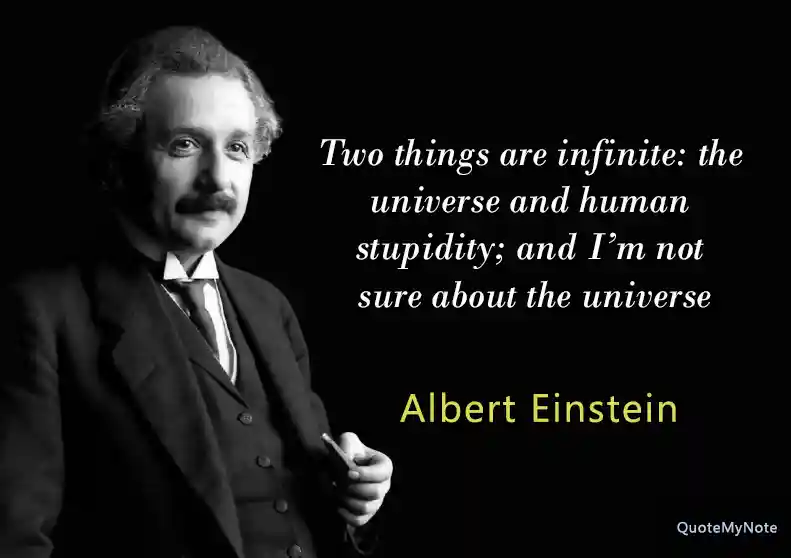Quotes by Albert Einstein for Inspiration and Motivation

Albert Einstein, born on March 14, 1879, in Ulm, Germany, was a theoretical physicist whose ideas revolutionized our understanding of the universe.
Despite facing challenges in school, his curiosity and passion for learning led him to the Swiss Federal Polytechnic in Zurich. His "miracle year" in 1905 produced the groundbreaking papers that introduced:
- The Photoelectric Effect
- Brownian Motion
- Special Relativity
- The famous equation
E = mc^2
Theories of Relativity
Einstein's Special Theory of Relativity redefined concepts of space and time, while his General Theory of Relativity described gravity as a curvature in spacetime.
Awards and Recognition
Einstein received the Nobel Prize in Physics in 1921 for his work on the Photoelectric Effect.
Advocacy and Legacy
Beyond science, Einstein was a vocal advocate for peace and civil rights. Fleeing Nazi Germany in 1933, he settled in the United States at the Institute for Advanced Study in Princeton, New Jersey.
Einstein's legacy extends beyond his scientific contributions; his philosophical and political views also left a lasting impact. He passed away on April 18, 1955, but his work continues to inspire and shape our understanding of the cosmos.
Inspirational and Motivational Quotes by Albert Einstein


Conclusion
Albert Einstein was a renowned German-born physicist who revolutionized our understanding of space, time, and gravity. His contributions to science are immense and far-reaching. Einstein's legacy continues to shape our understanding of the universe, and his work remains a cornerstone of modern physics.